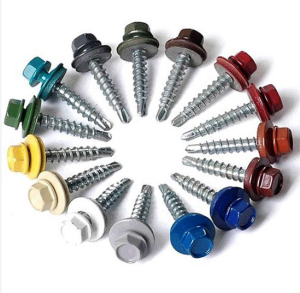Understanding the Importance of Flat Washer Lug Nuts in Automotive Service and Maintenance
Understanding Flat Washer Lug Nuts Service and Maintenance
Flat washer lug nuts are an essential component in the assembly and maintenance of various vehicles, especially in the automotive industry. They play a critical role in securing the wheels to the hub, ensuring that your vehicle operates safely. This article will explore what flat washer lug nuts are, their significance, and important service tips to maintain their functionality.
What Are Flat Washer Lug Nuts?
Flat washer lug nuts, as the name implies, are lug nuts that typically come with a flat washer attached. They are designed to distribute the load more evenly across the surface of the wheel and hub, thereby reducing the risk of damage that can occur with uneven pressure application. These lug nuts are made from durable materials, such as steel or alloy, which provide the necessary strength and resistance to environmental factors, including corrosion and wear.
The flat washer serves a dual purpose it not only provides a larger surface area for load distribution but also helps to prevent the lug nut from loosening over time. This is particularly important because a loose lug nut can lead to serious safety issues, including wheel detachment while driving.
Importance of Flat Washer Lug Nuts
The importance of using flat washer lug nuts cannot be overstated. They contribute significantly to the overall safety of a vehicle. Properly installed lug nuts ensure that the wheels remain securely fastened, allowing for better control and handling. Inadequate fastening, on the other hand, can lead to vibrations, which may result in premature wear of the wheel bearings and suspension components. Moreover, wheels that are not securely attached pose significant risks to both the driver and others on the road.
Service and Maintenance Tips
Maintaining flat washer lug nuts is crucial for extending their lifespan and ensuring optimal performance
. Here are some key service tips to considerflat washer lug nuts service

1. Regular Inspection Regularly check your lug nuts for any signs of damage or corrosion. Inspect the flat washers as well for any wear that might affect their ability to distribute load adequately. If any lug nut appears damaged, it’s advisable to replace it immediately.
2. Torque Specification Always adhere to the manufacturer's torque specifications when installing or removing lug nuts. Using the correct torque is essential to avoid both over-tightening and under-tightening. Over-tightening can lead to stripping the threads, while under-tightening can cause the lug nuts to loosen during operation.
3. Use a Torque Wrench When installing lug nuts, using a torque wrench ensures that the nuts are tightened to the right specifications. This tool allows for precision and helps prevent the potential damage that can occur from manual installation.
4. Rotate Tires Regular tire rotation is vital for even wear and tear. During tire rotation, take the opportunity to check the condition of the flat washer lug nuts and ensure they are adequately torqued.
5. Watch for Wheel Vibration If you notice unusual vibrations coming from your wheels while driving, stop and inspect the lug nuts as they may have loosened. Addressing such issues promptly can prevent further complications.
6. Professional Service If you are unsure about the condition of your flat washer lug nuts or how to service them, consult a professional mechanic. Their expertise can help ensure that your vehicle remains safe and that its components are functioning correctly.
Conclusion
Flat washer lug nuts are small but vital components of vehicle safety and performance. By understanding their function and implementing routine service practices, you can help maintain the integrity of your vehicle's wheel assembly. Regular inspections, following torque specifications, and seeking professional assistance when needed will not only prolong the life of your lug nuts but also contribute to your overall driving safety. Always prioritize vehicle maintenance to ensure a smooth, safe, and enjoyable driving experience.
-
Top Choices for Plasterboard FixingNewsDec.26,2024
-
The Versatility of Specialty WashersNewsDec.26,2024
-
Secure Your ProjectsNewsDec.26,2024
-
Essential Screws for Chipboard Flooring ProjectsNewsDec.26,2024
-
Choosing the Right Drywall ScrewsNewsDec.26,2024
-
Black Phosphate Screws for Superior PerformanceNewsDec.26,2024
-
The Versatile Choice of Nylon Flat Washers for Your NeedsNewsDec.18,2024










